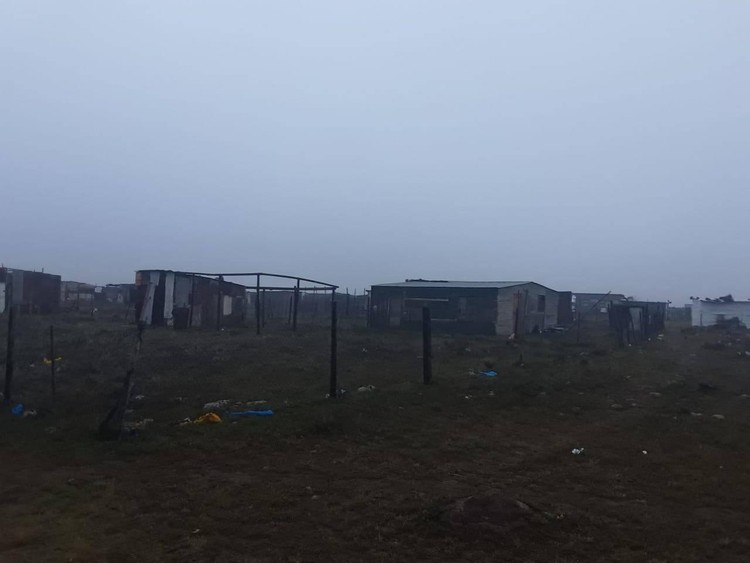Makhanda occupiers say they can no longer afford to pay rent
Municipality is concerned with informal settlements mushrooming in the city
In Ethembeni in Extension 7 in Makanda people started constructing mud houses and shacks late last year because they could no longer afford to pay rent. Photo: Loyiso Dyongman
- Two new informal settlements have started in Makhanda (formerly Grahamstown).
- The occupiers say they can no longer afford to pay rent.
- It is unclear whether the municipality will try and remove the homes being built on the two plots.
The growing number of new informal settlements in Makhanda is concerning, says Makana Municipality Mayor Mzukisi Mpahlwa.
“These new informal settlements are not approved by the municipality. Once people build informal shacks, they start to demand water. After that they demand electricity and other services. We are not going to demolish them before we get a court order,” said Mpahlwa.
He was start of two new informal settlements in the city. On land in Extension 8, people began marking out plots on a piece of vacant land earlier this month. A church and goat kraal have already been built.
At the second plot near Ethembeni in Extension 7, people started constructing mud houses and shacks last year.
On Tuesday, residents in Extension 7 and 8 complained that the municipality has failed to provide them with housing.
In Extension 7, Ntsikelelo Budaza, 43, said: “I can’t stay with the whole family at home. I need my own house for my wife and kids. I have been living with my mother and sisters all my life and now I have a family.”
Budaza said he has become despondent about receiving an RDP house which he applied for years ago.
In Extension 8, Madoda Zweni, 40, who is unemployed said: “If you don’t just build your own shack, you will die without ever owning a house.”
He said that when the municipality builds new houses, the allocation process is unfair..
Zweni said he was aware of another informal settlement called Enkanini where people were also erecting structures. “The municipality started fighting the building of Enkanini but people fought back and protested. Later the municipality approved the informal settlement. The municipality gave them communal water taps and now this year it has promised to give them electricity,” he said.
Nomathemba Mali, 54, from Extension 8 said she has been renting for many years and could no longer afford it. “I’m a domestic worker and only work a few hours for three days a week. I get R1,440 a month and have to buy groceries, electricity, R24 per taxi trip to work, and R600 for rent.
“I’m a single mother living with my 16-years-old granddaughter. For the whole month we depend on this money. The R600 rent we now won’t have to pay will make a difference,” said Mali.
Nomakhosazana Seyisi, who has an RDP house near the land where people are erecting structures, blamed the government for failing to provide enough housing for people. She said she was sympathetic towards the residents who were desperate for a place to stay. “These people can’t afford to pay rent as they are unemployed. I used to rent before too and understand their frustrations,” said Seyisi.
It is unclear at this stage whether the municipality will try and remove the shacks homes being built on the two plots.
Next: SASSA’s Uitenhage office only serves 50 people a day. This is what it looked like at 1:30pm
Previous: UK accused of poaching health workers from poorer countries
© 2021 GroundUp. This article is licensed under a Creative Commons Attribution-NoDerivatives 4.0 International License.
You may republish this article, so long as you credit the authors and GroundUp, and do not change the text. Please include a link back to the original article.



